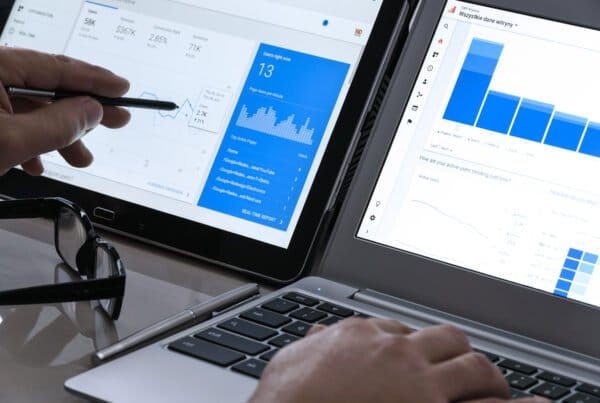“The more your customer relates to your ad, the more likely they are to buy from you.”
When you design a Pay-Per-Click (PPC) ad campaign it’s important to understand the terms and phrases your customers use to describe your business, services, products, and most importantly the problem or desire they want to resolve or fulfill. Below we help give you some advice on how to find keywords customers use that will resonate with their needs and promote more clicks.
Increase Your Returns with Better Research
Connecting your solution to your customer’s problem begins with the words they type into the search box. By investing time and resources into keyword research, you will not only understand what search terms your customers use to find your business, you’ll also learn more about your customer base as a whole.
With targeted keyword research, you won’t just attract more visitors to your site but the right kind of visitor that actually might want to purchase your service.
Proven Keyword Research Tools
Because you are serious about finding the perfect keywords your customers actually search for, you should consider investing in a keyword research tool. Free tools like Google Adwords Keyword Planner can help you sort through keywords one-by-one and help you understand what your customers are looking for. (Keep in mind you have to sign up for Google AdWords first before using the tool.) Google Keyword Planner helps you search for keyword or ad ideas, see historical statistics, and get an idea with how it could perform for your customer base. This free tool can lay a strong foundation for your keyword research and PPC campaign.
Other paid options can offer you more in-depth knowledge that speeds up the keyword research process. Here are three that we recommend.
SECockpit – Allows you to create projects around certain keywords or do a single keyword search right from the start-page dashboard. You’ll be able to easily search for synonyms to keywords that are generated from Google Suggest, Google Adwords, or Google Related Searches to give you better results from your ad.
Long Tail Pro – is user friendly with features that help you better analyze your competition. You can see how many sites use the search keyword in their page titles. You will be able to filter out keywords that have minimal local results to keep your keywords relevant to your customers.
Keyword Tool Dominator – this is probably the simplest tool you could hope for to find relevant, popular, keyword phrases customers typically use when searching online. This tool doesn’t show how many searches are done but ranks the keyword phrases on popularity which easily allows you to see which keyword phrases are used most often. Best part is this tool is super cheap at less than $20 for a lifetime purchase. They also have a suite of other keyword search tools specific to shopping sites such as Amazon, Ebay, Google shopping and more.
How to Learn If Your Customer Uses a Keyword in 4 Steps
Step #1: Figure out what value the keyword holds for your business
Before you jump headfirst into using a keyword or phrase for all your website content or your new PPC campaign, ask yourself some questions to determine its value to your business.
- Is the chosen keyword related to your website and it’s content?
- Will the keyword guide users to what they want on your site and will they be happy with the results of the search?
- Will these new visitors increase revenue or help achieve another goal?
- If your answers are a resounding ‘Yes” move on to step 2.
Step #2: Search for the keyword using Google, Yahoo! and Bing.
In this step you want to assess the competition. You will be able to see which websites are already ranking for the keyword phrase. Do you see PPC advertisements on the top or sides of the search results? If there are a lot of ads already for the keyword, you have discovered a high value keyword and competition will be strong.
Step #3: Test for Traffic
By purchasing a sample campaign for the keyword at Google AdWords and Bing Adcenter, you can easily get a sense of the type of traffic you might receive per keyword, if your ad is clicked. If your website wasn’t on the first page of the keyword search, you can buy traffic with a test ad and see how well it converts. Make sure to set up the campaign to be an “exact match” to the keyword you are testing then link traffic to the specific page on your website. Track impressions and conversion rates of over at least 2-300 clicks.
Step #4: Review the Collected Data
When you run the numbers, you can discover how valuable this actual keyword is to your business. If 5 out of 100 visitors from the ad converted for a total profit of $500, then each visitor for this keyword is worth $1 to your business. If the keyword could generate 1 million visitors over the year, you have a potential to earn $1,000,000. To state the obvious: If you get conversions from the keyword, your customers are actually using it!
Keyword research is the key to identifying the keywords your customers are actually using.
There are a few free tools available for the business owners out there while the paid services offer detailed analytics to help you target your customer specifically. In order to be successful with search marketing and PPC, you need to get into the head of your customer and figure out the keywords they actually use.
Reach out to us and ask any questions you have about paid search and we’ll help get more of your customers to your site today.












